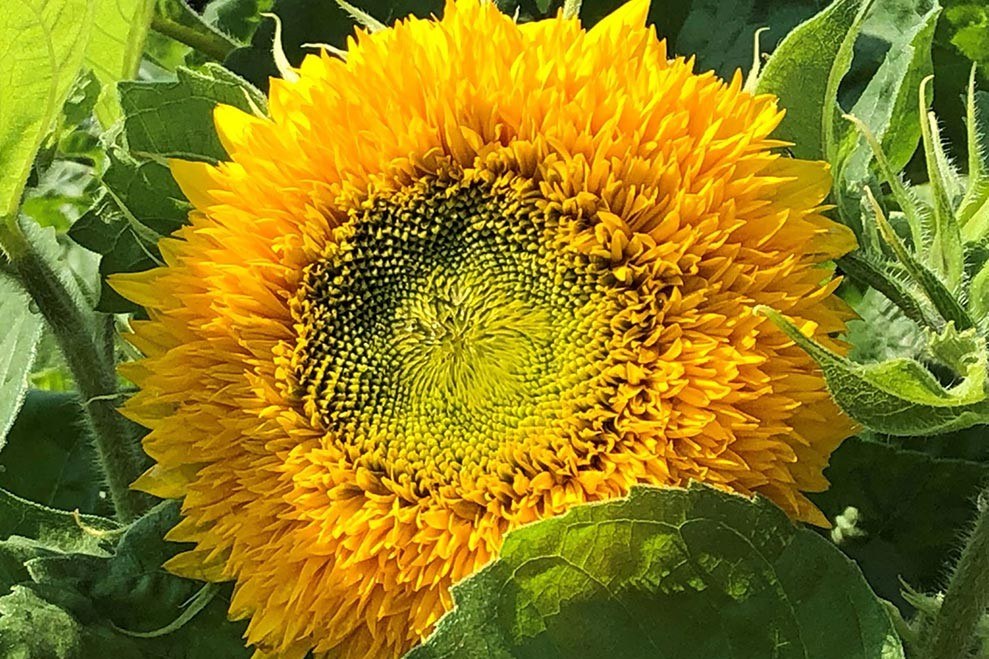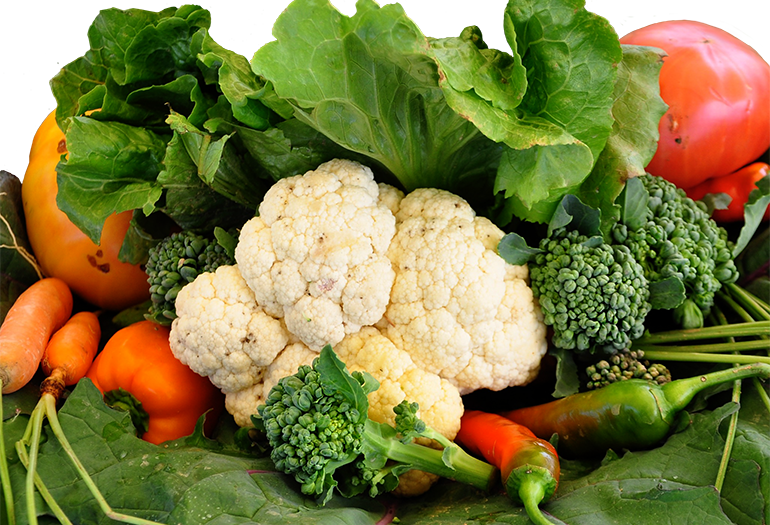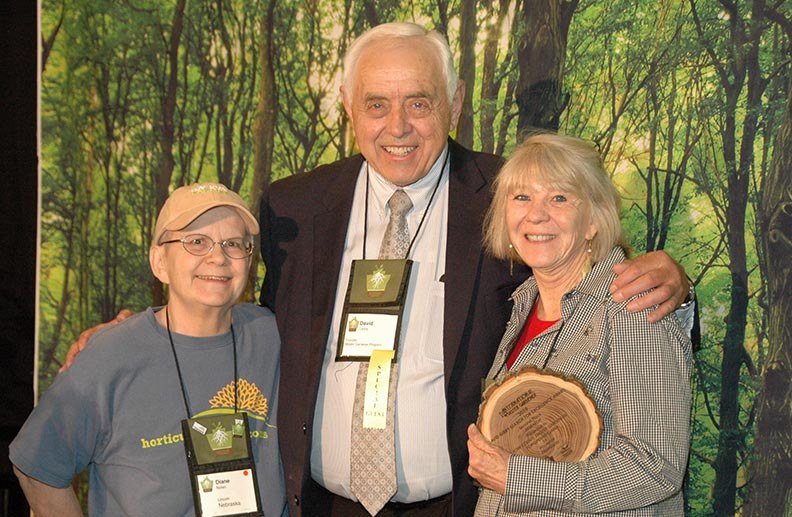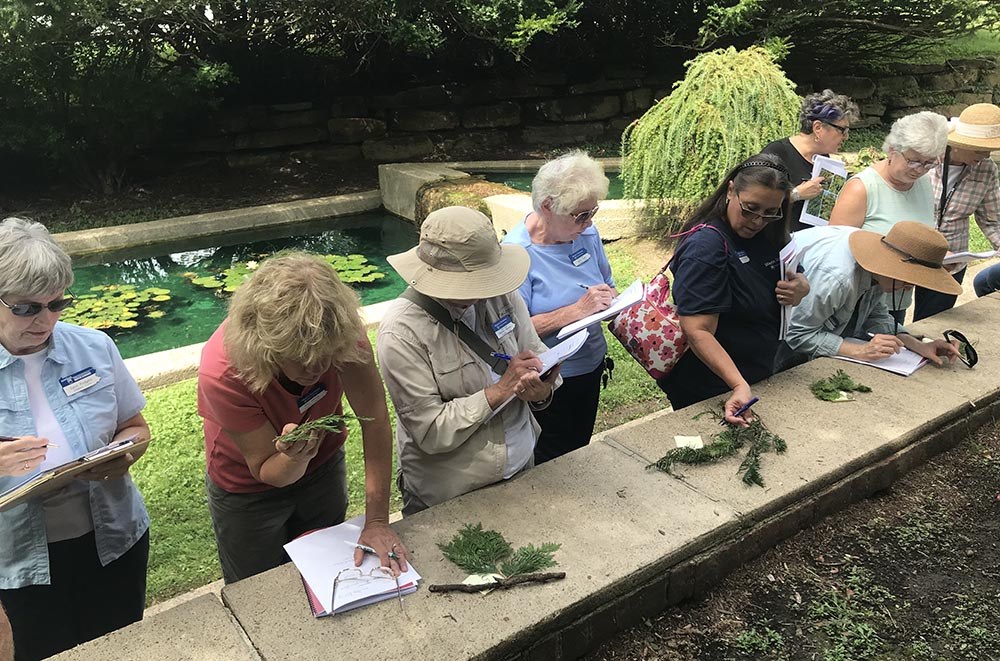The Penn State Extension Master Gardener volunteer program supports the outreach mission of Penn State Extension by utilizing unbiased research-based information to educate the public and our communities on best practices in sustainable horticulture and environmental stewardship.

Statewide Highlights
- 2,890 active Penn State Extension Master Gardener volunteers
- 523 newly trained Master Gardeners
- 221,578 volunteer hours reported for a value of $5,634,728
- 206,951 direct adult contacts
- 55,653 direct youth contacts
- 45,430 continuing education hours

Photo: Diane Diffenderfer
Master Gardeners Answer Questions
Master Gardeners maintain a Garden Hotline in 57 counties. They reported 15,136 contacts with people who sought this service via telephone, email, visits to the extension county office, or at community events. An additional 915 questions were answered through the online eXtension system--for a total of 16,051!
Master Gardeners Speak
- 951 Speakers Bureau presentations
- 37 radio, TV, or Internet spots
Master Gardeners Write
- 669 articles published in newspapers, magazines, or blogs
Master Gardeners in the News
- 357 news articles, radio, or TV spots were published about their projects
Master Gardeners Teach
- 791 single-session classes or workshops
- 48 conferences with multiple presenters
- Horticultural therapy in 52 special needs communities
- In 182 community gardens
- The Poison Prevention Program delivered to 13,691 students in 235 schools
- 521 educational displays at county, regional events, and fairs
Master Gardeners Partner
- 453 community and county organizations
Master Gardeners Contribute
- 17,247 pounds of fresh produce donated to community food banks from Master Gardener-led gardens.
Home Lawn and Garden Newsletter
- 18,682 subscribers
Master Gardeners Recognized at International Conference
- Lackawanna County, 2nd place Community Service; North Pocono Garden Project at the North Pocono Library
- York County, 2nd place Demonstration Garden; The Gardens at John Rudy County Park
- York County, 2nd place Research; Pollinator Preferences

Photo: Mike Masiuk
Statewide Programs
Advanced Training Summary

Photo: Nancy Knauss
During the 2018-2019 reporting year, the Penn State Extension Master Gardener Hotline answered over 15,000 plant- and insect-related questions from the public. With such a high demand for this service, Penn State has specialized in advanced training programs to arm Master Gardeners with the information and skills to deliver the highest-quality horticultural advice to their clients. This training is currently provided through Monthly Diagnostic Webinars and the Woody Plant Identification Advanced Certificate Program, with more under development.
The Monthly Diagnostic Webinars are held on the third Thursday of each month and feature one to two topics related to common pest and disease issues for that time of year. The webinars reinforce accurate identification and proper control methods that Master Gardeners should provide to callers. Extension educators and specialists from across the state are invited to be instructors for each topic. The webinars are also recorded and posted in a shared folder so volunteers who are unable to watch them live can view them at a later date. Hot topics this year included ticks, late season vegetable diseases, and tree fruit maintenance.
In order to earn the Woody Plant Identification Advanced Certificate, Master Gardeners complete in six different course modules on Plant Taxonomy and Morphology, Broadleaf Evergreens, Conifers, Deciduous Shrubs, Flowering Trees, and Shade Trees. Each module (aside from Plant Taxonomy and Morphology, which is held online) comes with a full-color field guide to accompany its plant list. Modules are taught by Penn State Extension horticulture educators, professors, and Master Gardener coordinators at various locations throughout the state. Over 350 Master Gardeners are currently working on their certificates.
What's next? Two additional training programs in Mushroom Education and Entomology are anticipated to launch in the upcoming year.
Ag Progress Days

Photo: Nancy Knauss
Penn State's Ag Progress Days is held annually at the Russell E. Larson Agricultural Research Center. With over 400 exhibitors from the United States and Canada, it is Pennsylvania's largest three-day outdoor agricultural exposition.
During the event, Master Gardeners from across Pennsylvania volunteer time and expertise at the Yard and Garden demonstration area educating attendees on best practices in sustainable horticulture and environmental stewardship. The demonstration garden, which is managed by the Master Gardeners of Centre County, includes focus areas for pollinators, vegetables, annuals and perennials, fruit trees, native plants, and birds. A total of 368 participants took tours of the demonstration gardens.
In addition, Master Gardeners also volunteer at the Pesticide Education booth informing attendees about the importance of using integrated pest management (IPM) practices to control pests with the least toxic controls. 2,249 adults and youth visited the interactive display to learn about IPM.
In hands-on activities, 497 youth participated and learned about seed planting basics and pollinators. The youngest guests harvested vegetables in containers and made a "bee buzzer."
In total, 231 adults and youth visited the butterfly house to experience the stages of metamorphosis.
A total of 245 attendees listened to presentations on pollinators, growing a Victory Garden in a high tunnel, seed saving, soil testing, flower arranging, the botany of fruits, growing garlic, plant genetics, and selecting garden tools.
Master Gardeners answered 260 horticultural questions, instructing visitors on best management practices.
Garden Hotline

Photo: Nancy Knauss
Total of 16,015 questions answered:
- 15,136 gardening questions
- 915 eXtension questions
- 481 Master Gardeners participated
- 16,992 volunteer hours contributed
| Question categories | Total number of questions per category |
|---|---|
| Disease questions or samples processed in office | 2,756 |
| Disease samples sent to University Plant Disease Clinic | 554 |
| Garden planning/plant selection/plant propagation | 1,077 |
| Insect (indoor) questions or samples processed in office | 516 |
| Insect (indoor) samples sent to the University for ID | 96 |
| Insect (outdoor) questions or samples processed in office | 1,629 |
| Insect (outdoor) samples sent to the University for ID | 93 |
| Weed and invasive ID and management | 976 |
| Plant ID | 952 |
| Referrals/upcoming events/ Master Gardener Program | 754 |
| Site/weather-related or cultural problem | 868 |
| Soil health (soil testing, composting, mulching) | 911 |
| Spotted lanternfly | 1,161 |
| Plant culture, care, and pruning (includes turfgrass) | 2,141 |
| Wildlife/animals | 447 |
Data does not include 915 questions answered online through eXtension
Of the 147 respondents who changed a practice that resulted in a cost savings:
- 48 percent avoided purchasing the wrong pest management remedy.
- 30 percent used a lower-cost cultural or mechanical method for managing the pest.
- 12 percent saved a sick plant and now it is doing better.
- 10 percent replaced the plant with one that is better suited for the site conditions.
Results from the follow-up survey that was shared with Garden Hotline users:
- 95 percent found the information provided to be very useful.
- 95 percent rated the service as being very good to excellent.
Spotted Lanternfly

Photo: Beth Finley
The spotted lanternfly is an invasive sap-sucking planthopper from southeast Asia, first discovered in Berks County in 2014. In the years since its discovery in Pennsylvania, it has established populations in 13 contiguous counties in the southeast part of the state and has increased its numbers dramatically within the earlier infestation range.
Spotted lanternfly feeds on at least 75 plant hosts, including landscape trees, grapevines, fruit trees, timber, and hops. Unlike crop-specific agricultural pests, this creature impacts every resident in areas where its numbers become significant. In addition to injury caused by plant feeding, spotted lanternfly secrete an abundance of sugary waste, or honeydew, coating everything beneath its feeding sites. This sugary substrate in turn encourages the growth of a black sooty mold. The mold coats leaf surfaces, compromising photosynthesis and overall plant health and aesthetics. Penn State has become the national leader in research and education on the spotted lanternfly, working closely with the Department of Agriculture and the U.S. Department of Agriculture. While researchers are at work on multiple fronts to develop safe and effective management strategies, Penn State Extension Master Gardeners have been charged with dissemination of reliable and current information to the general public.
This year, Master Gardeners fielded over 1,100 spotted lanternfly calls from residents on county Garden Hotlines, and hundreds more at fairs, festivals, and public meetings across the state. They presented 251 public programs on this pest, educating over 8,000 Pennsylvania residents.
Master Gardeners have a twofold role in addressing the spotted lanternfly infestation: to promote nonchemical management practices, such as scraping of egg masses, swatting, stomping, tree banding, and hosing with water blasts, and to deal with nonthreatening nuisance infestations.
Where infestations pose a greater threat, chemical intervention may be appropriate. In this case, it is the role of Master Gardeners to promote safe, legal, and environmentally sound use of chemicals to closely target the pest while minimizing peripheral damage. One nontoxic and effective technique recommended to residents is to place a single band of sticky flypaper tape around the trunk of infested trees about 4 feet from the ground. Since it is the habit of spotted lanternfly to repeatedly drop to the ground and then crawl up nearby vertical structures, the insects will be caught as they attempt to ascend the tree trunk. This strategy is very effective in capturing and killing all stages of the insect except the eggs, which are laid by surviving adults in the fall.
Legitimate concerns have been raised about the risk of sticky bands to wildlife. For that reason, residents are cautioned that every sticky band must be surrounded by a wire screening or fabric cage to prevent contact by other insects, songbirds, or small mammals.
International Master Gardener Conference

Photo: Nancy Knauss
Master Gardeners from across the globe convened in Valley Forge in June when the Penn State Extension Master Gardeners hosted the International Master Gardener Conference, a biennial gathering celebrating sustainable horticulture and environmental stewardship since its inception in 1987.
This was the first time Pennsylvania hosted the conference, which focused on the theme, "Penn's Woods: Digging into Our Roots," Over 1100 Master Gardeners explored the birthplace of freedom in America and experienced the rich horticultural history of the area.
David Gibby, founder of the Master Gardener Program, was one of the keynote speakers and took the attendees back to the roots of the program in 1972. David was also celebrated with the renaming of the Search for Excellence Awards in his honor.
Over 300 Master Gardener volunteers worked diligently to provide programming and networking opportunities, including 58 classes and breakout sessions on topics such as insect and disease problems of trees and shrubs, urban agriculture and stormwater management, tree pruning, companion planting, bee nutritional ecology, and diagnosing vegetable diseases.
Fifteen field study classes focused on sharing the history and horticulture of Philadelphia and the surrounding region. Nineteen conference tours included visits to the finest public gardens in the state--Chanticleer, The Scott Arboretum of the Swarthmore College, Morris Arboretum, Longwood Gardens, Mt. Cuba, Winterthur, Rodale Institute, urban gardens of Philadelphia, and Penn State's Southeast Agricultural Research and Extension Center in Manheim.
To decorate the event center and follow the theme of Digging into our Roots, county Master Gardener programs designed kites featuring interesting pieces of history or culture from their county. Throughout the conference, attendees worked diligently to complete the kite activity game "Our Roots Let Us Soar" to learn a little bit of the history of our state.
Farm Show

Photo: Nancy Knauss
The Pennsylvania Farm Show is the largest indoor agricultural exposition under one roof in the nation. The event showcases the quality and breadth of Pennsylvania's agriculture industry and the people who make it thrive.
Master Gardeners are actively involved in educating Farm Show attendees at several booths. At the Penn State College of Ag Sciences display, Master Gardeners can be found answering gardening questions and sharing the latest research on best management practices in horticulture. Approximately 400 questions were answered on topics from soil to cultural practices and pest and disease problems.
Master Gardeners also volunteer at the Vegetable Growers booth, where attendees test their knowledge of vegetables and their health benefits.
For 16 years, Master Gardeners partnered with the Penn State Pesticide Education Program to educate families and youth about proper use and handling of pesticides in the home. Volunteers and Pest Ed staff discussed pesticide safety with 4,916 Farm Show attendees.
In 2019, Master Gardeners first worked with the Pennsylvania Apple Growers to support the Ag Explorer's Learning Station, an interactive booth for youth of all ages. Older kids may learn how drones are used to detect fungal diseases in apple orchards, while younger children pretend to be a drone finding their way through a maze looking for the ladder that was accidently left behind in the orchard. Approximately 3,000 youth and adults visited the Ag Explorer's Station and learned fun facts about apples, including that Pennsylvania is the fourth-largest producer of apples in the country.
We deeply appreciate the efforts of all our Master Gardeners across Pennsylvania to educate the public on best practices in sustainable horticulture and environmental stewardship. This year, we would like to extend a special thank you to our volunteers achieving Milestone Service Hours who have gone above and beyond to advance our program’s mission.

